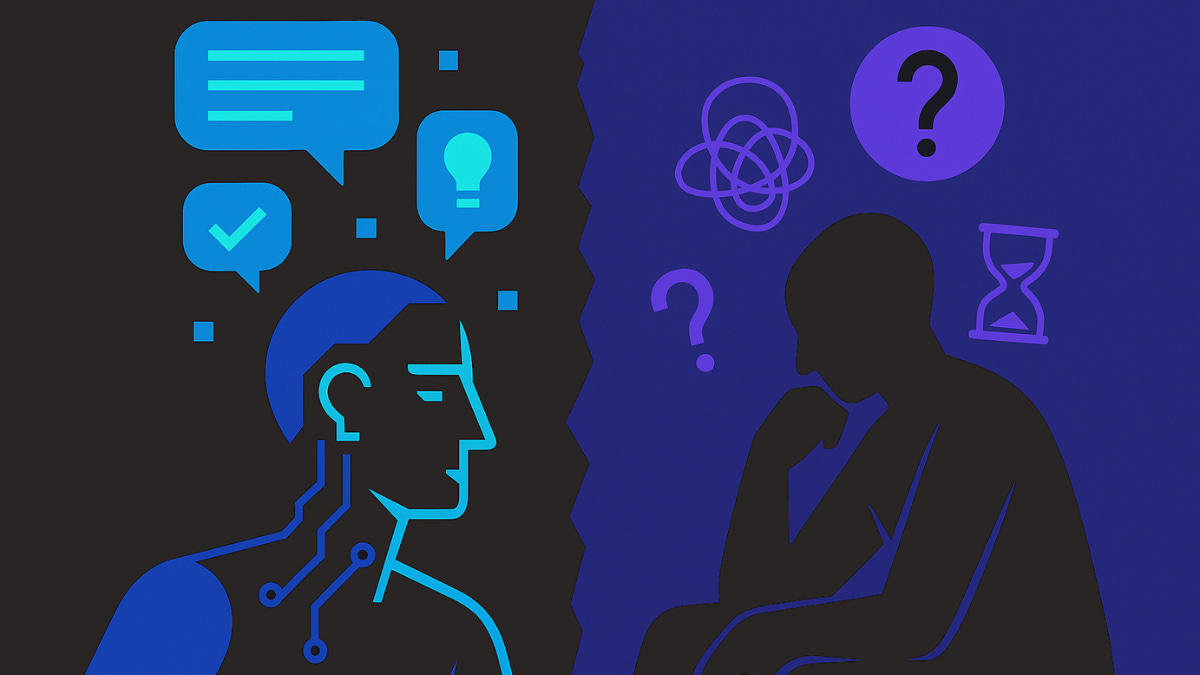AI Thinks, Therefore I Don't.
Exploring how Artificial Intelligence and Human Intelligence influence each other.
The world is accelerating at an astonishing pace.
Should it?
Behind the cliche lies a fundamental question about how humans behave, think and act. In an era where artificial intelligence looks increasingly human, human intelligence seems to become increasingly artificial.
This is not about minimising the impact of generative technologies, let alone dismissing them entirely. While blindly following a consensus on nascent technologies can prove perilous, few dispute that these advancements will profoundly reshape humanity.
The real challenge here is rather to explore the intricate dynamics between technological (r)evolutions and human behaviour.
It is as if the era of 'everything now' was erasing the critical steps that shape our thoughts, making them, if not robust, at least defensible.
As if conclusions were forming themselves out of a reasoning vacuum.
As if definitive statements and other one-liners, delivered with extraordinary vigour, were the basis for any eternal truth.
Make no mistake: human interactions, and the behaviours they generate, are an art form enriched by strong, bold statements. We see it every day, in history-making summits, game-changing speeches, and other jaw-dropping events. 'The' statement will get immortalised in AI-generated summaries. 'The' moment will secure its place in the digital archives of our collective mind.
If every statement is delivered this way, does thought retain any real strength? Does it even have any strength at all? Is conciseness synonymous with truthfulness?
One must wonder: does this phenomenon stem from technology's ever-growing dominance?
Technology makes our lives easier, but also makes our thinking much lazier. Though not inherently contradictory, these trends hardly promise an exciting future for all of us. Unless, of course, we willingly delegate thinking to ever more powerful machines.
I am digressing. Let me return to the topic at hand.
As our attention span is shrinking like an ice cap, the temptation to take massive shortcuts is insidiously shaping how we think, speak, and act. Traditional thinking flows have been upended: leaders across fields now embrace the 'act now, think later' philosophy. On the surface, this attitude is refreshing. Embodying change and showing a resolute will to act have rarely been seen as a flaw, after all.
One must question if this approach holds up to logic, or even basic coherence.
Do the disruptive changes touted by political leaders truly align with their deepest convictions? Do the tantalisingly ambitious visions of business leaders even have real grounding?
My simplistic take is that the everything now era makes us concisely reactive.
My simple take is that the everything now era is a byproduct of the triggers embedded in some of our technological tools.
My complete take is, well, worth writing another article.
This is an immensely complex debate, but one thing remains clear: I refuse to believe that punchlines, taglines and headlines have become the signs of our cognitive decline.


